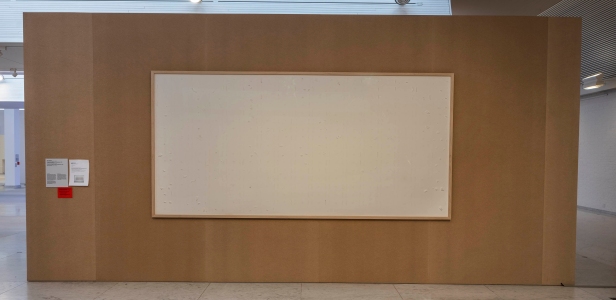What Your Work Says About Your Character
If you paid $84,000 for someone to paint a picture, what would you expect to get?
Of course, if you’re like me, you’re thinking, “WHO’S GOT $84,000 SITTING AROUND TO SPEND ON A PAINTING?!” But that’s what a museum in Denmark paid Jens Haanin to create a new work of art. Now before I go on a rant about what he turned in, I’m all for paying artists a decent wage. As someone who has trouble coloring within the lines, I admire the talent and skill of those who masterfully create art.
But what Haanin turned in was not art; it was … nothing. He submitted two blank canvasses and called it “Take the Money and Run.” Har, har. Haanin called his “work” a commentary on poor wages, but I’ve yet to figure out how stealing $84,000 speaks to the problem of poor wages. It seems to me he was paid some pretty good wages for doing nothing. Of course, he doesn’t see what he did as stealing, but he did admit it was a breach of contract. He said, “It is a breach of contract, and breach of contract is part of the work.” In my opinion, breach of contract is a form of stealing, but, hey, to-MAY-to, to-MAH-to.
 Did the Danish museum feel cheated? Of course, they did. I want to lay a little blame on the museum personnel for not discussing the specifics of the art they wanted before any contract was signed. I’m mostly critical, though, of an artist who spent a few bucks at the Danish version of Hobby Lobby and simply turned in empty canvases—arrogantly assuming he still deserved the $84,000.
Did the Danish museum feel cheated? Of course, they did. I want to lay a little blame on the museum personnel for not discussing the specifics of the art they wanted before any contract was signed. I’m mostly critical, though, of an artist who spent a few bucks at the Danish version of Hobby Lobby and simply turned in empty canvases—arrogantly assuming he still deserved the $84,000.
This reflects an attitude that seems to be growing in our own American culture: people expect to be paid well regardless of the work they do—or don’t do. To be clear: everyone who works should be paid well; they should be paid a fair wage. No one—no matter how unskilled or menial the work—should be paid so poorly that they can’t provide the basics of food, clothing, and shelter.
The problem in our culture is that too many people think they have a right to be paid on the same level with those who work harder. They want their standard of living to be on equal par with the brightest and best—without putting in the same amount of time and effort that the brightest and best put in to become the brightest and the best. And let’s be honest: some art is worth $84,000, and some is not.
As a follower of Christ, I am committed to giving my best to whatever work or task is in front of me. Scripture calls me to that.
“Whatever you do, do it from the heart, as something done for the Lord and not for people” (Col. 3:23).
If I’m to work for God’s glory, doesn’t that call for my best? How does it honor Christ if I compromise, cut corners, or settle for a half-baked effort? It may not be perfect, but if I’ve given it my best, that honors the One who gave His best for me.
No one in their right mind will ever offer me $84,000 to create a work of art, but if they did (and I could do it), I would want them to see the finished product and feel like they got their money’s worth.
Nor should we expect something for nothing. As the apostle Paul said, “If anyone isn’t willing to work, he should not eat” (2 Thess. 3:10). If a person has the ability to work but chooses not to, he should not expect others to do for him what he won’t do for himself. To be able to work yet choose to live idly off the work of others is, quite frankly, stealing. Too many people take advantage of government programs and the benevolence of churches—services and benevolence that could go to those who truly need it—when they themselves should be contributing for the benefit of others.
“Let the thief no longer steal. Instead, he is to do honest work with his own hands, so that he has something to share with anyone in need” (Eph. 4:28).
The quality of work you or I do—regardless of the pay—says a lot about our character and our walk with Christ. Being paid $84,000, submitting two blank canvasses, and calling it art says a lot about a person’s character. And what it says is not good.
Whatever you do today—and whatever you’re paid to do it—give it your best. Honor Christ. The quality of our work and how we approach it says much about our character and witness. Let your attitude and effort at your tasks be part of the reason God may one day say to you, “Well done, good and faithful servant.”
Subscribe to this blog or like our Facebook page. And share this post with others.
If you would like a printable version of this, check out PrintFriendly.com.




